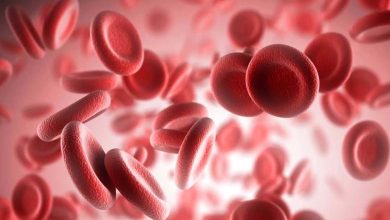To relieve restless – Magnesium and Restless Leg Syndrome

Restless legs syndrome corresponds to an irrepressible urge to move the legs, associated with pain and unpleasant sensations. At the same time, magnesium is an essential nutrient for the proper functioning of the body, playing an important role in several physiological mechanisms:
neurological function;
muscle function;
The immune system.
Magnesium deficiency or deficiency can cause symptoms similar to some signs of restless legs syndrome, such as:
Muscle contractions;
Muscle cramps;
Tingling and abnormal sensations especially in the legs;
Sleep disorders.
Read also – Restless legs syndrome: An intestinal origin?
Magnesium-rich foods
Magnesium was very quickly singled out in certain forms of restless leg syndrome. Some cases could be directly linked to a magnesium deficiency. Magnesium intake could therefore at least partially relieve the symptoms of impatience and thus constitute an interesting remedy against restless leg syndrome, when it is linked to a lack of magnesium. One study showed that magnesium supplements can effectively relieve mild to moderate forms of restless leg syndrome. More recently, another study suggested a significant improvement in sleep, thanks to magnesium supplementation.
For patients with restless legs syndrome, foods rich in magnesium would therefore be preferred:
Green vegetables, such as spinach and cabbage;
Nuts and seeds, such as pumpkin seeds;
Fatty fish, such as mackerel, sardines or tuna;
Legumes (beans, lentils);
The lawyers ;
Bananas.
Read also – Improve sleep in restless leg syndrome
Avoid Magnesium Overload
But be careful, to relieve the symptoms of restless leg syndromedo not absorb magnesium to the point of exceeding the recommended daily intake.
To know ! The recommended daily allowances (RDA) for magnesium differ according to sex, period of life and lifestyle. In infants, the RDA is 50 mg, against 250 to 300 mg in adolescents. The AJR in women increases from 360 mg to 500 mg in the event of pregnancy or breastfeeding. The needs of athletes are the greatest, with RDAs between 450 and 600 mg. According to estimates, around 70% of French people have an insufficient daily intake of magnesium.
Excess magnesium can indeed lead to bothersome and sometimes dangerous side effects, such as digestive disorders (nausea, vomiting, diarrhea, abdominal pain), low blood pressure, irregular heartbeat, mental confusion, or even a coma. Magnesium supplements should therefore be used with caution, respecting the dosages indicated. Most often, a balanced and diversified diet, rich in fruits and vegetables, is sufficient to cover magnesium requirements and therefore to provide optimal relief from restless leg syndrome, in addition to any treatments.












